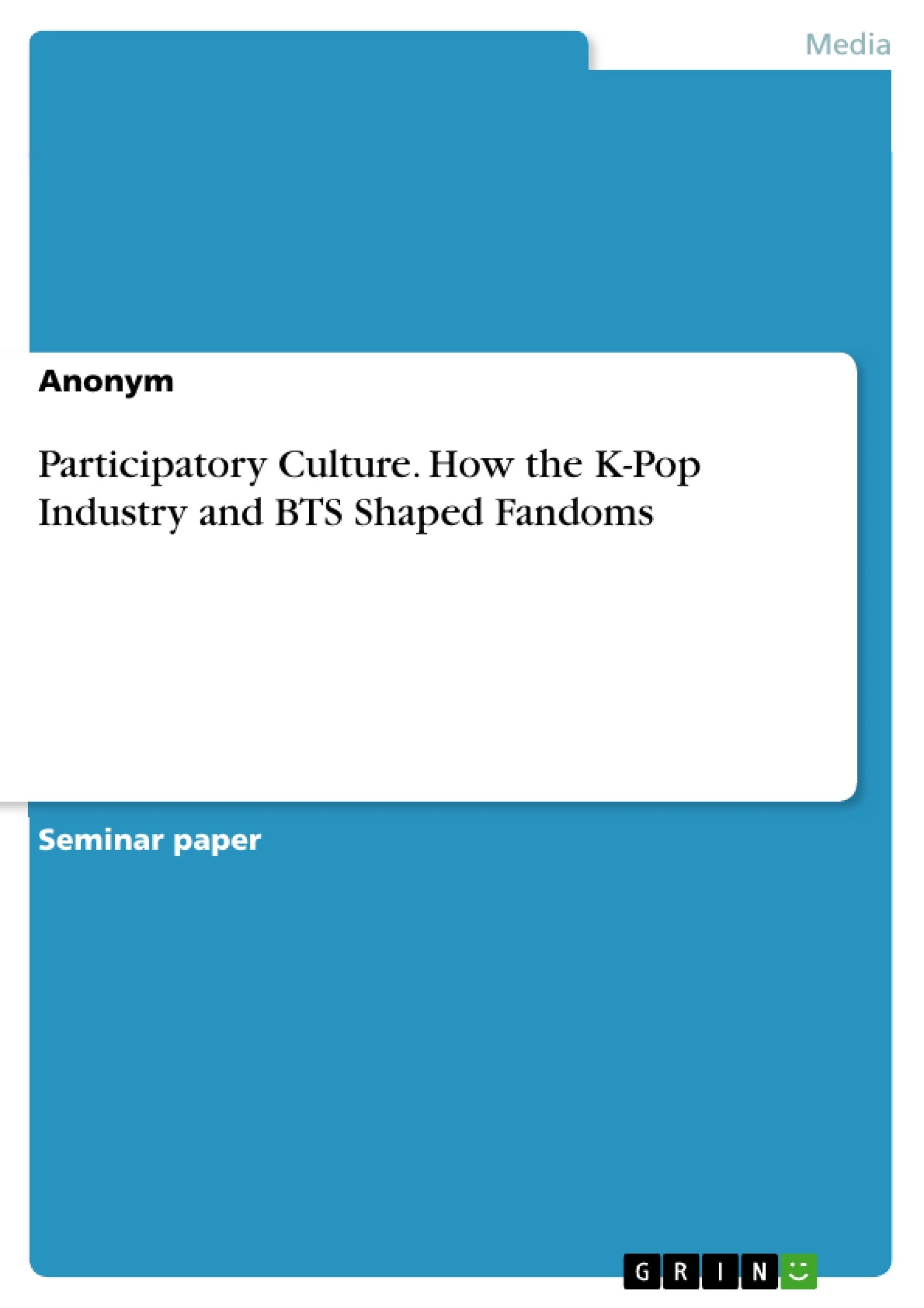This paper argues that participating in a fandom helps artists to gain recognition and fans to grow as individuals. This will be done by giving a description of what being a fan is and what the fundamental needs of a community is. Furthermore, the K-Pop industry will be introduced by stating the admission process, the duty of the Korean Idols and a description of the impact of BTS on their fandom “ARMY” and contrariwise.
The music industry has always been recognized as vital for the human expression. Not only has this been at an all-time high but also the fans participation. This participation can be expressed in multiple ways such as visiting concerts, making fan art, liking pictures, making compilation videos of the best moments, writing fanfictions and many more. Additionally, fans contribute to the marketing of singers, actors, athletes etc. Especially, music artists have the biggest communities to date. While there was already a wave of boy band “craziness” in the 1990s, it has not slowed down in the last decade. Furthermore, the inclusion of diverse and foreign artists has increased immensely. It is worthwhile to mention that K-Pop singers and bands are getting more popular worldwide every day. The so-called “Korean Wave” refers to the Korean popular culture preference phenomenon as mentioned by Soobin Choi, Gayeon Park and Hee-Woong Kim. (2) Particularly BTS (Bangtan Sonyeondan) is the biggest boyband today. Because of the dedication of their fandom called ARMY, they won almost every award there is. While they achieved fame, the fans gained other aspects such as new friendships and building a community. Besides this, they are also exceeding their essential needs and further them even more. Due to this, this paper argues that participating in a fandom helps artists to gain recognition and fans to grow as individuals. This will be done by giving a description of what being a fan is and what the fundamental needs of a community is. Furthermore, the K-Pop industry will be introduced by stating the admission process, the duty of the Korean Idols and a description of the impact of BTS on their fandom “ARMY” and contrariwise.
According to Stefanie Maar who wrote the book Fansegmentation und Fanpsychologie the term “fan” was shaped at the beginning of the 19th century, where mass media changed the marketing strategies in the West. Fan is abbreviated from the word fanatic which means that a person is very passionate about someone or something. Furthermore, fans have a personal and long-lasting connection to this fan object where they invest extreme amounts of time and money. Those fan objects can be of human nature or even a music and movie genre. (22-25) The minor difference to a K-Pop fan is that they are enthusiastic, loyal and admirer of the Korean Pop culture. (Laffan 2021, p. 2273) There is a distinction between a star-centered approach which are musicians, athletes etc. and the group approach where bands, sports teams are idolized. Lastly, the genre centered approach where it is all about music genre, film genre and sports. It is vital for most fans to participate in their community. As mentioned, spending money is part of this participatory culture. If fans visit concerts, they must buy tickets, most likely something to hydrate since visitors are not allowed to bring their own drinks into the venue and merchandise to splurge on. While there exist fans in every generation, most of them find their way into those communities as teenagers after they have hit puberty.
[...]
- Quote paper
- Anonymous,, 2022, Participatory Culture. How the K-Pop Industry and BTS Shaped Fandoms, Munich, GRIN Verlag, https://www.hausarbeiten.de/document/1244171



